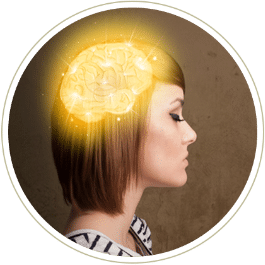Addiction does not live in isolation. There are many factors that affect whether someone will become addicted to drugs or alcohol. Because different substances damage different parts of the brain and the effects vary from person to person, treatment should never be one-size-fits-all. Even though other providers follow our lead in embracing addiction as a chronic brain disease, Enterhealth remains light years ahead of other addiction treatment providers in offering unique combinations of effective treatments that bring world-class substance abuse specialists and industry-leading assessments & tools together under one coordinated, full-time evaluation team.
This collaborative and integrated care is a powerful differentiator for achieving Enterhealth’s superior treatment outcomes. It means our patients have greater access to the right professionals, who have the right tools to more thoroughly assess your specific addiction scenario and create the optimal path forward for your healing.
Enterhealth’s multipoint and proprietary assessment protocol provides a 360-degree deep dive into your substance addiction issues with benchmarks established pre- and post-treatment to set goals for achievable success.



